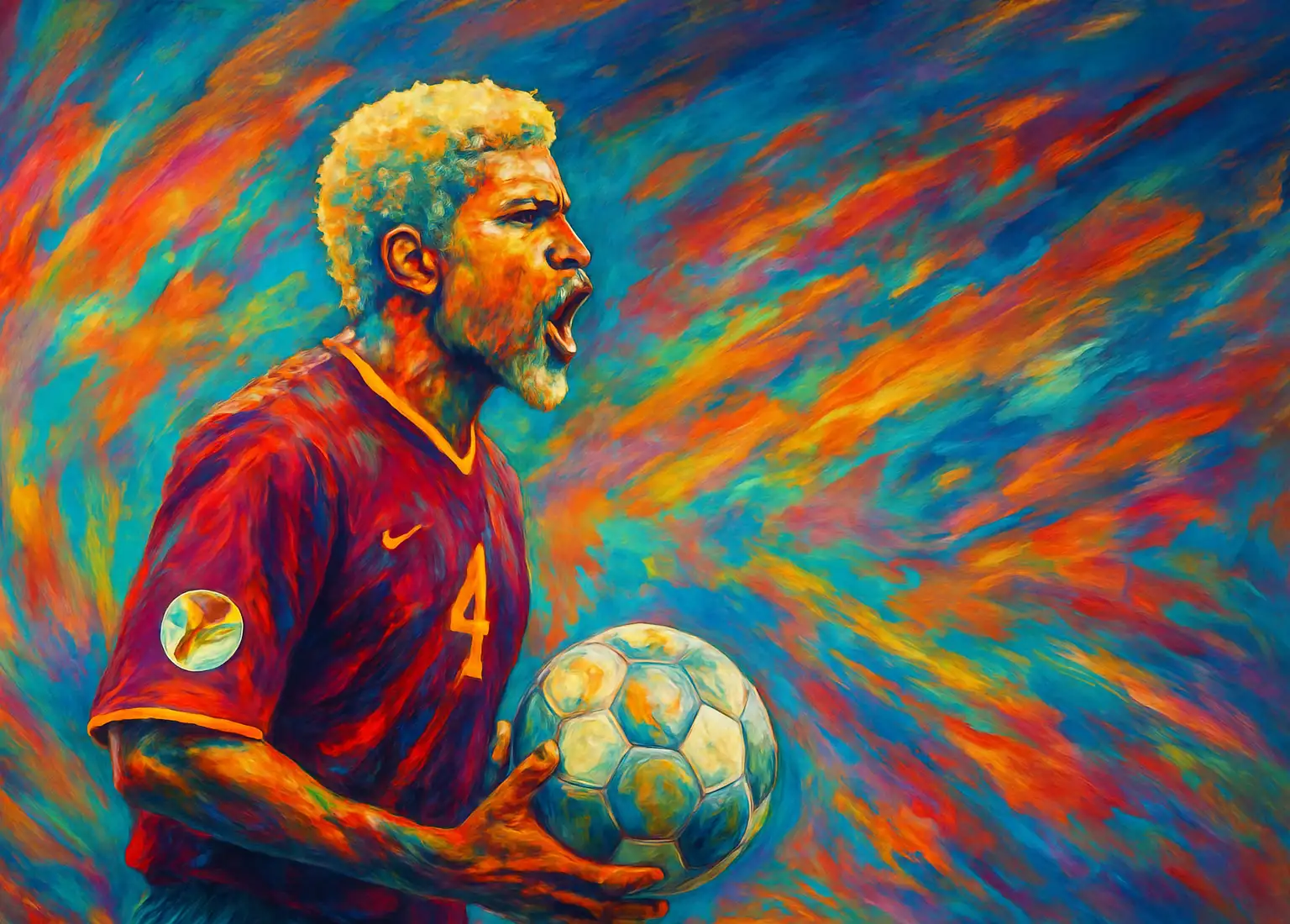
There are players who are remembered for their goals. Others for their trophies. And then there are those whose faces become immortal — etched into football’s collective memory not because they lifted silverware, but because, in one frozen moment, they lived something unforgettable.
Abel Xavier is one of those players.
Bleached blond beard and hair. Fierce stare. A peroxide warrior in an age of romantics. And in the summer of 2000, he became the symbol of heartbreak for a nation.
But his story — like his look — was never simple. It was dramatic, erratic, full of contradiction. And it’s that contradiction that makes it worth telling.
A Career Written in Transit
Abel Luís da Silva Costa Xavier was born in Mozambique in 1972 but moved to Portugal as a child, joining the youth system of Sporting CP before making his professional debut at Estrela da Amadora in the early 1990s.
From there, his career became a blur of shirts and stamps in the passport. Benfica. Bari. PSV Eindhoven. Everton. Liverpool. Galatasaray. Roma. Hannover. LA Galaxy. Middlesbrough. Clubs big and small. Countries cold and hot. He played in Portugal, Italy, the Netherlands, England, Turkey, Germany, the USA.
He never stayed more than two or three seasons in any one place. He was not a club icon. He was a cult figure. A character you couldn’t miss — and couldn’t quite place.
On the pitch, he was a powerful right-back, capable of centre-back duties, with a booming right foot and a theatrical presence. He was not always consistent, but he was always visible. In an era where defenders were often defined by discretion, Abel Xavier stood out — and leaned into it.
Portugal’s Golden Summer
By 2000, Abel Xavier was 27. Not a superstar, but part of Portugal’s blossoming generation. Luís Figo was peaking, Rui Costa was creating, João Pinto was fighting, and Nuno Gomes was scoring. Under Humberto Coelho, Portugal looked like something more than promise.
In the group stage of Euro 2000, they stunned England — coming back from 2–0 down to win 3–2 in one of the tournament’s best games. They then beat Romania and knocked out Germany, with Sérgio Conceição scoring a famous hat-trick.
Xavier didn’t play the opener but started the next three, bringing physicality and presence to the back line. He was solid. Committed. Unshakeable.
Until he wasn’t.
“
Bleached blond beard and hair. Fierce stare. A peroxide warrior in an age of romantics. And in the summer of 2000, he became the symbol of heartbreak for a nation.
The Hand That Broke a Nation
June 28, 2000. Stade de Bruxelles. Semi-final: Portugal vs France.
It was a heavyweight contest. Zidane, Deschamps, Henry. Figo, Rui Costa, Nuno Gomes. Portugal led 1–0, France equalised. It went to extra time. The golden goal era. First to score, wins.
And then… the moment.
113th minute. David Trezeguet’s shot ricochets. Sylvain Wiltord fires. The ball hits Abel Xavier’s arm.
Penalty.
He protests furiously. He pleads. He screams.
But the referee points to the spot. Zidane steps up. Scores.
Game over. France are in the final. Portugal are out.
Xavier collapses. In shock. In tears. His face — wild, blond, broken — becomes the image of Portuguese pain.
He is banned for nine months (later reduced to six) for shoving the referee and accusing UEFA of bias. His international career never truly recovers. Though he’d play the 2002 World Cup and win more than 20 caps, that night would define him.
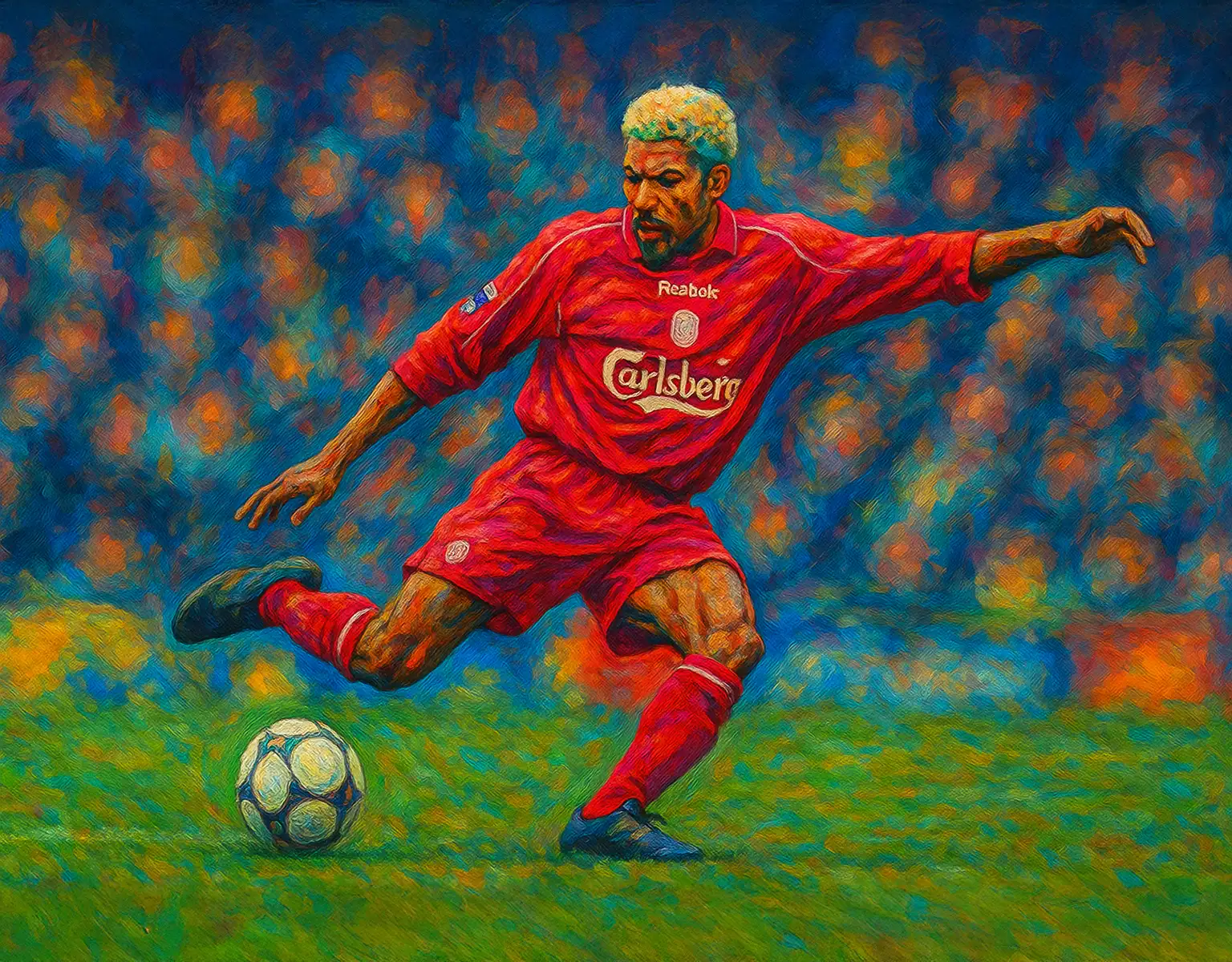
From Rebel to Pilgrim
After Euro 2000, Xavier’s club career continued its zigzag path. He became the first player since the 1950s to play for both Everton and Liverpool. He joined Roma, then Hannover, and eventually Middlesbrough.
It was there, in 2005, that another storm arrived.
Xavier became the first Premier League player to test positive for performance-enhancing substances. He was banned for 12 months. He always maintained his innocence — claiming he had taken an anti-virus medication that contained a banned substance — but the sentence stood.
After serving his ban, he resumed his career and eventually joined LA Galaxy in Major League Soccer.
And then, in 2009, came another twist: he converted to Islam. Changed his name to Faisal Xavier. Embraced a more spiritual life. Spoke of forgiveness, transformation, and healing.
He went into coaching. Briefly managed Mozambique. Appeared occasionally in the media. But mostly, he stepped out of the spotlight — or perhaps, he no longer needed it.
Not a Legend. But Never Forgotten.
Abel Xavier never won the Champions League. Never lifted a major international trophy. He didn’t make any Ballon d’Or lists. But he gave us something different.
He gave us a moment. One of those cruel, unforgettable, cinematic moments that football throws at us when we least expect it.
He was football’s opera — dramatic, flawed, unforgettable.
And for those who watched Euro 2000, that moment remains vivid: the whistle, the protest, the heartbreak.
The hand of fate.
Article Source: momblogsociety.com
Products: homesnugs.com
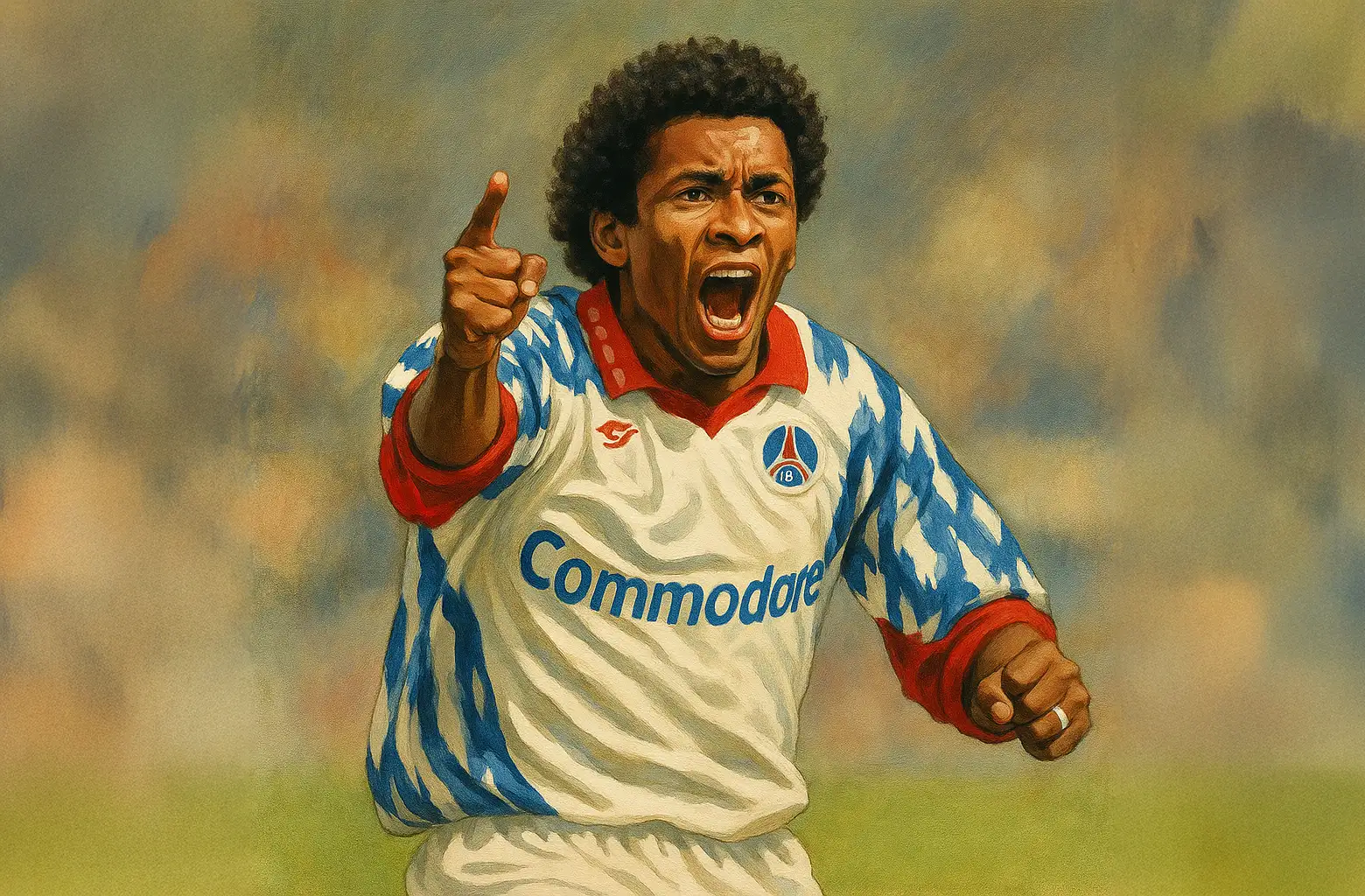
Valdo – provisory title
He dribbled like a dancer, played with a smile, and made chaos look beautiful. A rebel with the ball, and a genius no system could ever hold down.
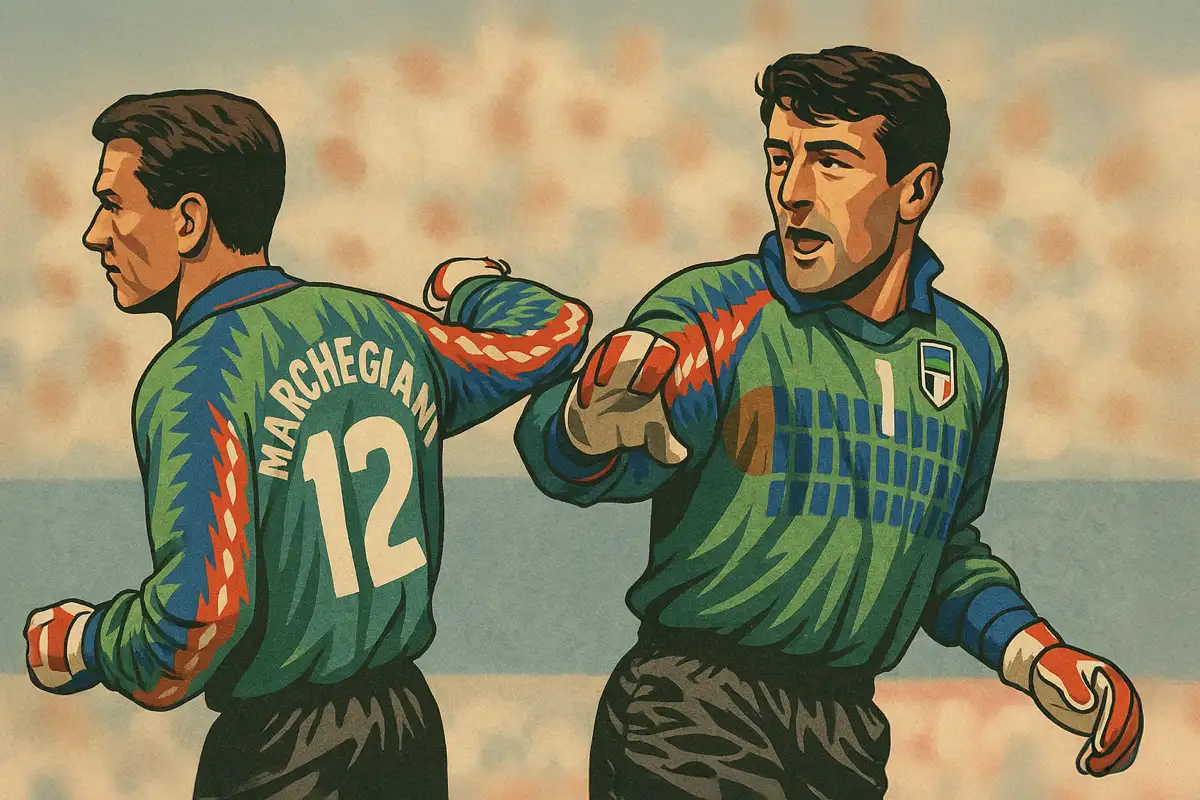
Italy’s 90’s Goalkeepers – provisory title
He dribbled like a dancer, played with a smile, and made chaos look beautiful. A rebel with the ball, and a genius no system could ever hold down.
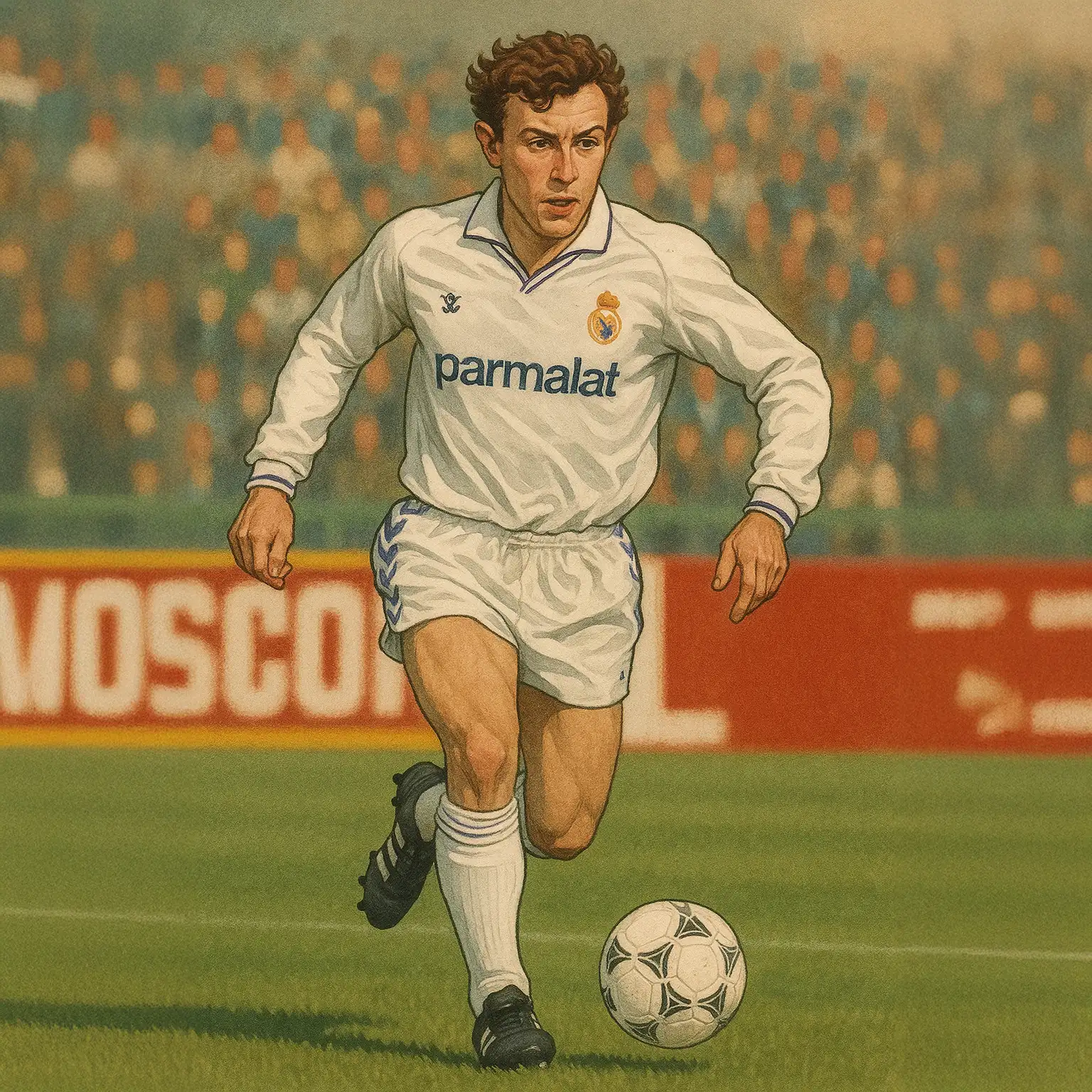
Emilio Butragueño – provisory title
He dribbled like a dancer, played with a smile, and made chaos look beautiful. A rebel with the ball, and a genius no system could ever hold down.

